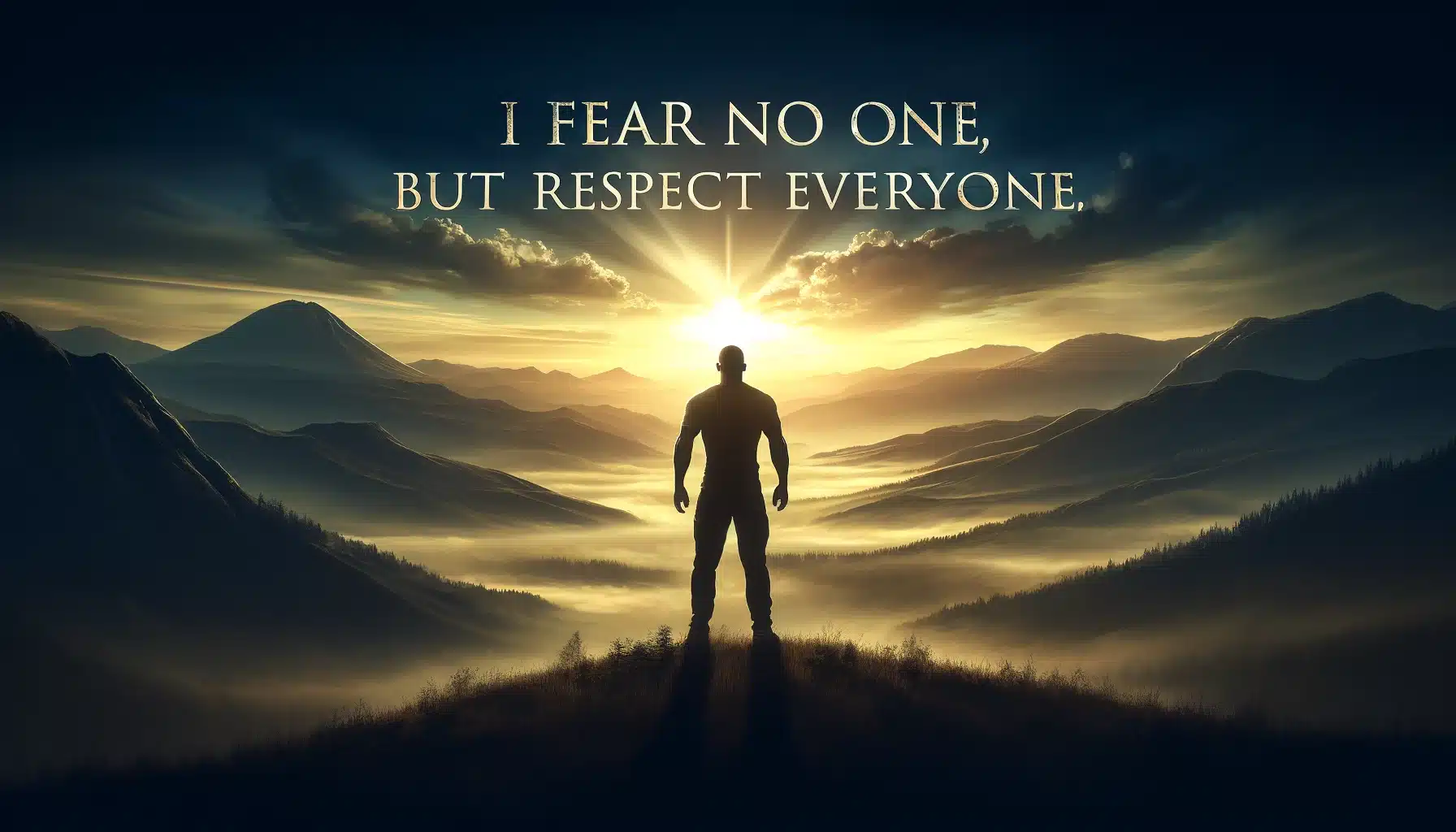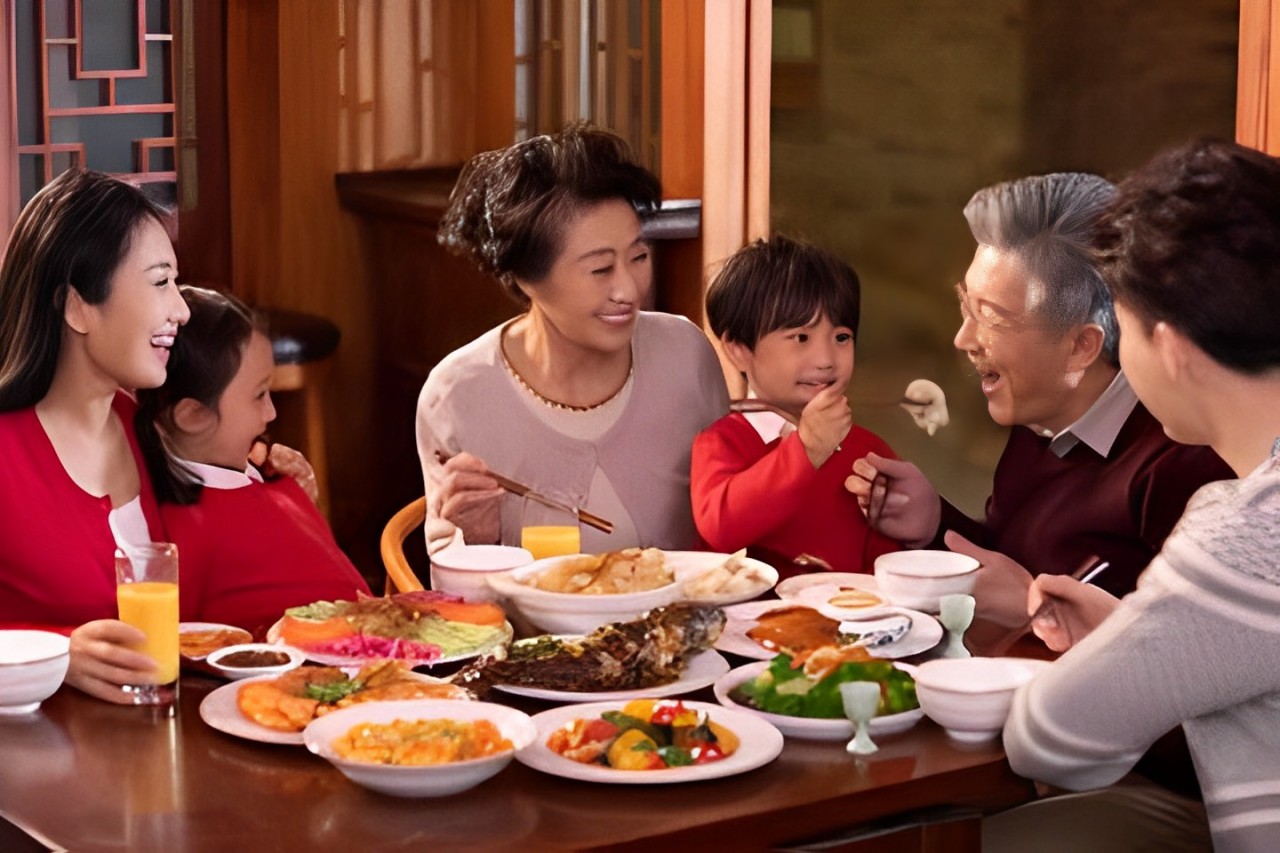Explore the empowering philosophy of “I fear no one, but respect everyone. – Tymoff,” examining its profound impact on personal growth, relationships, and navigating power dynamics in a complex world.
Introduction
In a world where power dynamics shape most relationships, the phrase “I fear no one, but respect everyone. – Tymoff” stands as a bold assertion of self-confidence and humility. This powerful mantra encourages individuals to overcome fear while recognizing and valuing the dignity of others. It emphasizes the idea that true strength is not in domination or intimidation, but in self-assurance and mutual respect. By incorporating this philosophy into daily life, one can cultivate resilience, improve interpersonal dynamics, and grow both personally and emotionally. In this article, we will explore the profound implications of this philosophy, its impact on personal development, and its potential for fostering healthier, more respectful relationships.
What Does “I Fear No One, But Respect Everyone. – Tymoff” Mean?
The phrase “I fear no one, but respect everyone” is not just a statement of confidence; it is an invitation to embrace a balanced approach to life. At its core, it advocates for the rejection of fear as a controlling force in one’s life. Fear can paralyze, limit potential, and create unnecessary divisions between people, By saying “I fear no one,” you are asserting your independence from external forces or individuals who might seek to manipulate or intimidate. This part of the mantra calls for the cultivation of inner strength and confidence, an understanding that no one has the right to diminish your worth or make you feel less than you are.
On the other hand, the phrase “respect everyone” calls for empathy, humility, and acknowledgment of the inherent worth in every person. Respect is not about submission; it is about recognizing the uniqueness and value of others, regardless of their social status, background, or differences. It is an invitation to engage with others in a way that is fair, kind, and considerate, leading to positive and enriching interactions. By balancing these two components—fearlessness and respect—individuals can navigate life with an open heart and a clear mind, fostering environments where cooperation and mutual understanding thrive.
The Role of Self-Confidence in Embracing the Mantra
Self-confidence is an essential foundation for living out the philosophy of “I fear no one, but respect everyone. – Tymoff.” Without confidence in oneself, it becomes challenging to live without fear of others. Fear often arises from the perceived threat of judgment, rejection, or failure. However, when one possesses a deep sense of self-assurance, the fear of these external factors diminishes. Self-confidence allows individuals to stand tall, knowing that their value is not contingent upon the approval or disapproval of others.
It is important to note that self-confidence is not synonymous with arrogance. True self-confidence is grounded in self-awareness and self-acceptance. It is the understanding that you have intrinsic value and that no external force can change that. This inner strength enables individuals to remain calm in the face of adversity, stand up for themselves when necessary, and pursue their goals with determination. When self-confidence is coupled with the respect of others, it creates a harmonious balance where one can assert their own needs and desires while also acknowledging the worth of those around them.

How “I Fear No One” Transforms Personal Growth
Fear is one of the most powerful emotions that can hinder personal growth. It often manifests as self-doubt, anxiety, or a reluctance to take risks. When individuals allow fear to control their actions, they limit their potential and miss out on opportunities for growth and success. The philosophy of “I fear no one” challenges individuals to confront their fears head-on, cultivating a mindset of resilience and courage.
Overcoming fear does not mean eliminating it entirely; rather, it involves learning to manage and control it. Fear can still arise in challenging situations, but individuals who embrace the mantra of fearing no one understand that they have the ability to respond to fear constructively. This mindset allows them to push through uncertainty and take bold actions, whether in their personal or professional lives. By practicing fearlessness, individuals can break free from the constraints of self-imposed limitations and unlock their true potential.
The Importance of Respect
While fearlessness empowers individuals to pursue their goals, the second part of the mantra, “respect everyone,” provides a crucial balance. Respect is the cornerstone of healthy, thriving relationships. When individuals respect others, they acknowledge the inherent value of each person, regardless of their differences.
Respect in this context is not about blindly agreeing with everyone or subordinating oneself to others. Instead, it is about valuing diverse perspectives, honoring boundaries, and treating others with kindness and fairness. Respect allows for open, honest communication, where individuals feel heard, understood, and valued. It also promotes equality and inclusivity, creating environments where everyone can thrive and contribute their unique strengths.
By practicing respect, individuals can foster stronger connections with others, both personally and professionally. In a society where divisiveness often prevails, respect has the power to bridge gaps, build alliances, and create a sense of shared humanity. When fear is replaced by respect, relationships become more meaningful, cooperative, and supportive.
Navigating Power Dynamics Without Fear or Arrogance
Power dynamics are present in virtually every aspect of life, whether in the workplace, social settings, or personal relationships. These dynamics can often create tension, competition, and inequality. The philosophy of “I fear no one, but respect everyone” offers a unique approach to navigating these power imbalances. Rather than engaging in power struggles or subordinating oneself to others, individuals who embrace this mantra can navigate power dynamics with dignity and integrity.
“I fear no one” means that individuals do not need to succumb to the pressures of authority or power. They are not intimidated by those in positions of power and are not afraid to stand up for themselves when necessary. Instead, they engage in healthy, constructive interactions that promote collaboration and mutual benefit.
By balancing fearlessness with respect, individuals can assert their needs, opinions, and values without resorting to aggression or submission. This approach fosters a sense of equality and fairness, allowing individuals to navigate power dynamics with confidence and grace.

Building Healthier Relationships Through Fearlessness and Respect
The combination of fearlessness and respect has profound implications for interpersonal relationships. In any relationship, whether personal or professional, fear and disrespect can create barriers to trust, communication, and understanding. Fear of judgment, rejection, or failure can prevent individuals from being open and authentic, while a lack of respect can lead to conflict, misunderstandings, and resentment.
The philosophy of “I fear no one, but respect everyone” provides a framework for building healthier, more meaningful relationships. Fearlessness allows individuals to be vulnerable, authentic, and open in their interactions. They are not afraid to express their true selves, share their thoughts and emotions, or take risks in their relationships.
By embracing this philosophy, individuals can cultivate relationships that are based on mutual trust and support. Such relationships are not defined by fear, manipulation, or power struggles, but by a deep sense of respect and shared values. In this environment, individuals can grow together, learn from one another, and create lasting connections that enrich their lives.
Conclusion
The philosophy of “I fear no one, but respect everyone. – Tymoff” offers a powerful guide to living a life of personal growth, resilience, and meaningful relationships. By cultivating self-confidence and rejecting fear, individuals can unlock their full potential and pursue their goals with determination. By practicing respect, they create environments of trust, understanding, and collaboration, where everyone’s inherent worth is acknowledged.
In a world where power dynamics, fear, and division often hinder progress, this mantra provides a path to greater harmony and personal fulfillment. Embracing fearlessness does not mean dismissing others; it means standing firm in one’s own strength while honoring the dignity of all. Respecting everyone does not mean submitting to others; it means acknowledging their value and treating them with kindness and fairness. By embodying these principles, individuals can create a life that is grounded in confidence, compassion, and mutual respect, fostering an environment where growth, connection, and understanding can flourish.





